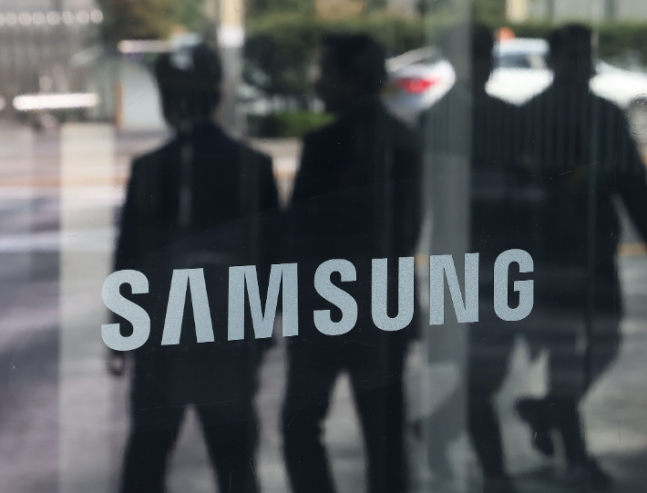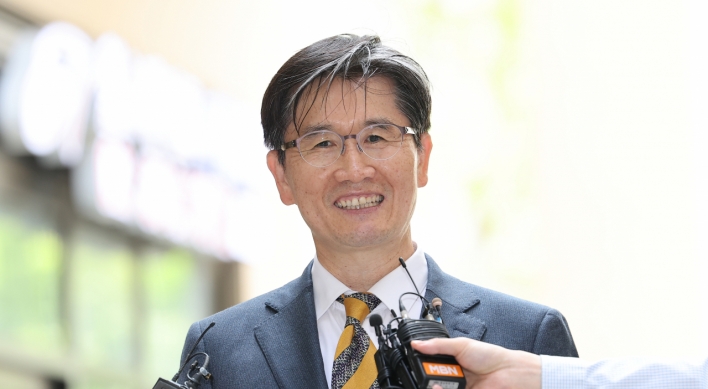Samsung eyes chip facility in Japan amid thaw in Seoul-Tokyo relations
World’s top memory chip maker revamping Japanese operations, taking advantage of chip materials, advanced packaging tech
By Jo He-rimPublished : May 15, 2023 - 15:27

Samsung Electronics, the world’s top chipmaker by revenue, is reportedly considering building an additional research and development facility in Japan amid a thaw in Seoul-Tokyo relations.
Japanese media outlet Nikkei reported on Sunday that the Korean chipmaker will build a chip development facility estimated to cost some 30 billion yen ($220 million) in Yokohama, where it already has Samsung R&D Institution Japan.
There, Samsung will build a prototype chip production line with the facility set to start operations from 2025, the report said.
Following the report, Samsung said nothing has been confirmed regarding such a plan on Monday, adding that Japan has always been an important partner in its chip business.
“Japan has been among the strong players in the chip industry, and it still has many companies doing well in material, parts and equipment. The country has always been important for us,” a Samsung official said.
Samsung recently reorganized its R&D facilities in Japan, bringing together all of its five semiconductor labs and one display research institute to newly establish the Samsung R&D Institution Japan.
Nikkei reported that the Korean tech giant is already in talks with the Japanese government on a new R&D facility, and that joint research with Japanese material and manufacturing equipment suppliers is underway.
"The establishment of a base by a top Korean company will further strengthen cooperation between the Japanese and Korean semiconductor industries," the Nikkei report said, calling it "symbolic."
If Samsung decides to build the R&D facility in Yokohama, it is likely to receive a subsidy of over 10 billion yen from the Japanese government, the news report added.
Japan announced a subsidy program to boost its domestic chip industry, and has offered to provide $3.6 billion for a joint venture of Taiwan Semiconductor Manufacturing, Sony Semiconductor Solutions and Denso to establish a chip factory in the Japanese prefacture of Kumamoto. The three companies established Japan Advanced Semiconductor Manufacturing in 2021.
“Japan has strengths in materials and post-manufacturing processes such as chip packaging, and it is reasonable for Samsung to have a research facility in Japan, like it does in other countries with strong chip industries,” an industry official told The Korea Herald on condition of anonymity.
At the same time, the move is seen as a move to bolster the two countries' weakened partnership. Bilateral economic ties have been strained for the past few years due to disputes dating back to Japan's colonial rule of the peninsula.
Earlier in the month, South Korean President Yoon Suk Yeol and his Japanese counterpart Fumio Kishida held a summit to reaffirm their determination to improve bilateral economic ties. The leaders agreed to bolster cooperation in semiconductors, materials, parts and equipment, among others.
Samsung's reported plan to build an R&D facility in Japan is also in line with the company's determination to increase R&D spending, which it sees as the way to break through the severe downturn in the chip industry.
Samsung had announced a plan to invest $20 trillion won by 2028 in August last year, for an R&D center in Giheung, Gyeonggi Province. The center would be dedicated to advanced research on next-generation devices and processes for memory and system semiconductors.
The tech giant topped the global chipmaker list with $67.1 billion in revenue in 2022, according to London-based research firm Omdia. Intel and Qualcomm followed at second and third with $60.8 billion and $36.7 billion, respectively. Another Korean chipmaker, SK hynix, came fourth with $34.1 billion.










![[Weekender] How DDP emerged as an icon of Seoul](http://res.heraldm.com/phpwas/restmb_idxmake.php?idx=644&simg=/content/image/2024/04/25/20240425050915_0.jpg&u=)

![[Today’s K-pop] NewJeans' single teasers release amid intrigue](http://res.heraldm.com/phpwas/restmb_idxmake.php?idx=644&simg=/content/image/2024/04/26/20240426050575_0.jpg&u=)






![[Herald Interview] Mistakes turn into blessings in street performance, director says](http://res.heraldm.com/phpwas/restmb_idxmake.php?idx=652&simg=/content/image/2024/04/28/20240428050150_0.jpg&u=)
